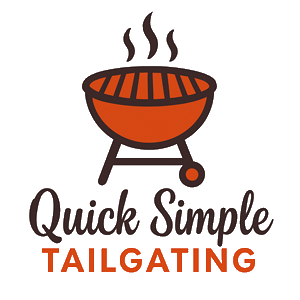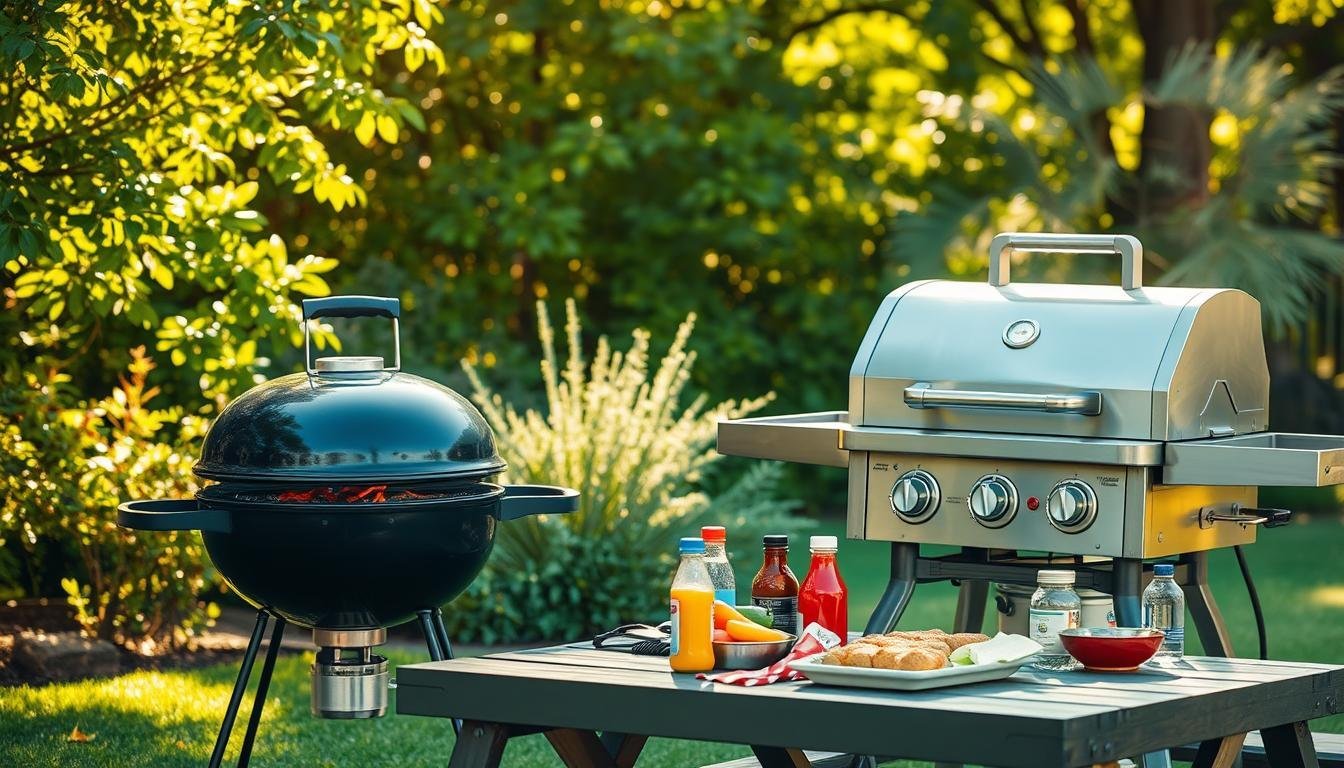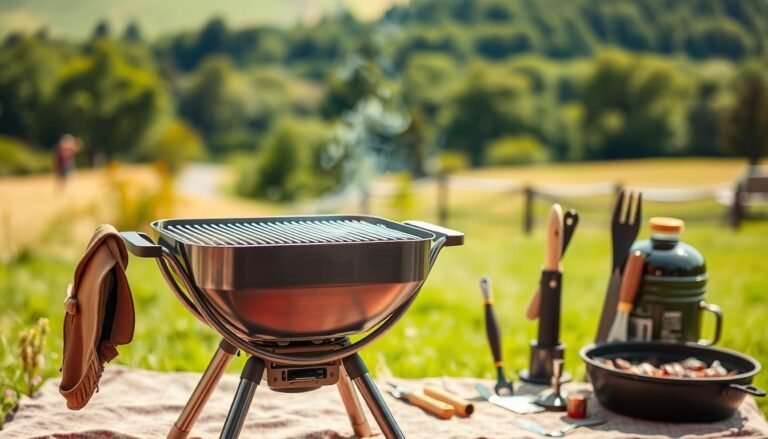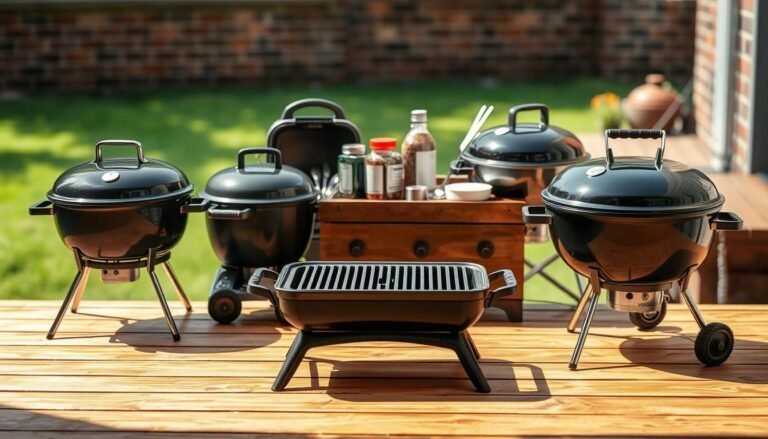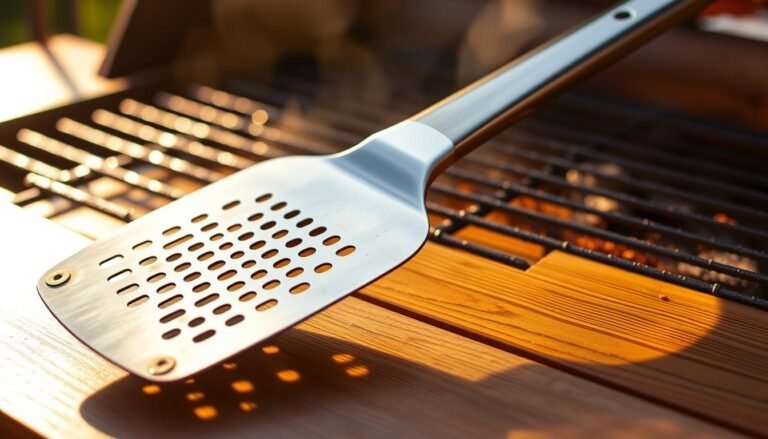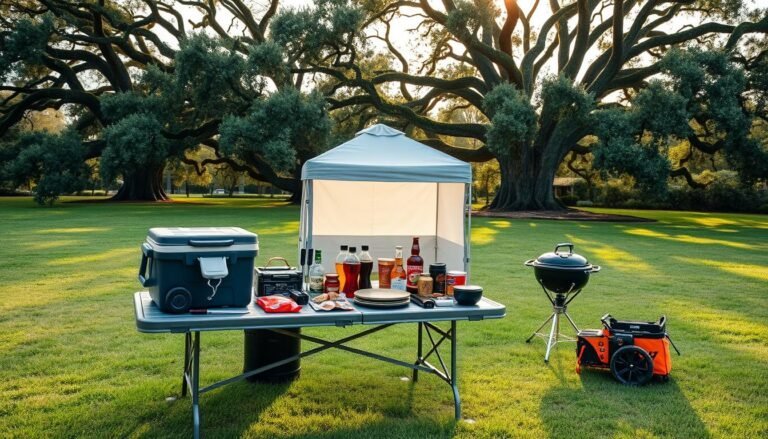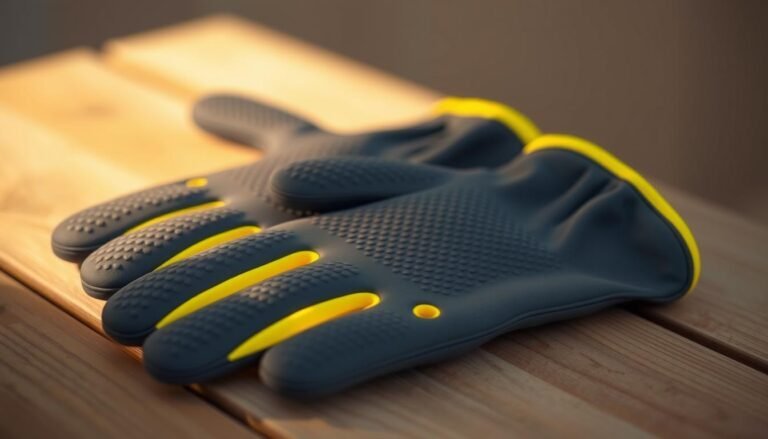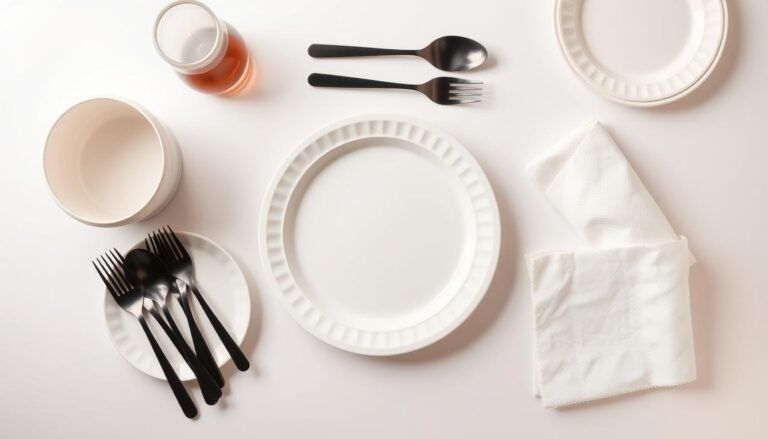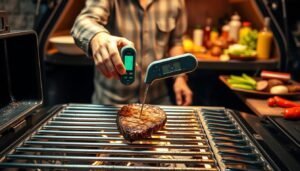Disclosure: This Post Contains Affiliate Links; We earn a commission on purchases.
Outdoor cooking fans often wonder if propane or charcoal is better for portable grills. Serious Eats says 60% of homes like gas grilling, showing a preference for propane.
But, charcoal grill lovers say it gives a special taste that makes grilling better. Picking the right fuel for your portable grill is key for great outdoor cooking.
Key Takeaways
- Propane grills are preferred by 60% of households for their convenience.
- Charcoal grills offer a distinct flavor profile.
- The choice between propane and charcoal affects the grilling experience.
- Outdoor cooking enthusiasts have different preferences.
- Understanding the differences is key to choosing the right grill.
The Fundamentals of Portable Grilling Fuels
It’s important to know the basics of portable grilling fuels. This helps you choose between propane and charcoal grills. Each type works differently, affecting your grilling experience.
How Propane Portable Grills Function
Propane portable grills use bottled gas through a hose. The gas is lit, creating a steady heat. This makes it easy to cook many foods. The main benefits are:
- Quick ignition
- Consistent heat output
- Ease of use
How Charcoal Portable Grills Operate
Charcoal portable grills burn charcoal in a firebox. Heat spreads to the grate. The ventilation system helps control temperature by changing airflow. They’re great for adding a smoky taste to food. Key points are:
- Smoky flavor profile
- Temperature control via vents
- Charcoal arrangement for even heating
Propane or Charcoal: Performance Differences in Portable Grills
Understanding portable grilling fuels is key. It’s important to know how propane and charcoal grills differ. These differences affect your grilling experience, even when you’re on the move.
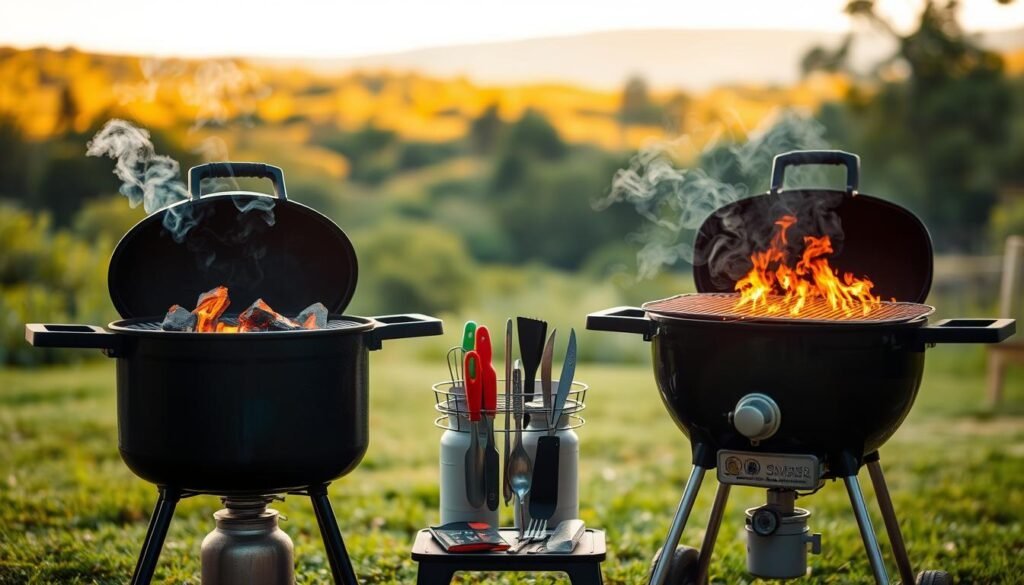
Heat Output and Temperature Control on the Go
Propane grills can get very hot, between 225°F to 600°F. They’re great for fast cooking. Charcoal grills can get even hotter, up to 1200°F. They’re often chosen for slow, indirect cooking.
Propane grills are easier to control. They usually have adjustable burners. This makes it simple to manage the heat.
Cooking Time and Fuel Efficiency for Outdoor Adventures
Cooking time and fuel efficiency matter for outdoor trips. Propane grills cook food faster because they heat up quickly. Charcoal grills keep heat longer but take longer to warm up.
Fuel efficiency also varies. Propane is often better for short trips. Think about your cooking style and trip length when choosing between propane and charcoal.
Flavor Profile Comparison: What Your Food Will Taste Like
When picking between propane and charcoal for your portable grill, think about how your food will taste. The fuel you choose can change the flavor a lot. It’s key to know how each one tastes.
The Classic Smoky Taste of Charcoal Grilling
Charcoal grilling gives food a rich, smoky flavor. This flavor comes from how charcoal burns, releasing special compounds into the food. Many love charcoal for adding depth to grilled meats and veggies.
The Clean, Consistent Flavor of Propane Cooking
Propane grills, on the other hand, offer a cleaner, more consistent flavor. Propane burns cleaner than charcoal, making less smoke. This is good for those who like a lighter taste or are cooking foods that might get too smoky.
Choosing between propane and charcoal depends on what you like and what you’re cooking. For quick-cooked foods, the taste difference is hard to tell, as Serious Eats says. But for a true grilled taste, charcoal is the top pick.
Convenience Factors for Portable Grilling
Choosing the right fuel for portable grilling is key. It can greatly affect your outdoor cooking. The fuel type impacts how easy the grill is to use and its performance outdoors.
Setup and Ignition in Various Outdoor Settings
Propane grills are super easy to use. They let you set the temperature quickly. This makes them great for outdoor cooking.
Charcoal grills, on the other hand, need more work. You have to light the charcoal and wait for it to ash over.
Cleanup and Maintenance on the Road
Propane grills are easy to clean. They don’t leave ash or charcoal behind. This makes them a breeze to maintain.
Charcoal grills, though, need a deep clean after each use. This can be a hassle.
Weight and Transportation Considerations
Propane grills are light and easy to carry. They come with their own fuel, making them simple to transport. Charcoal grills are sometimes lighter, but carrying charcoal can be messy.
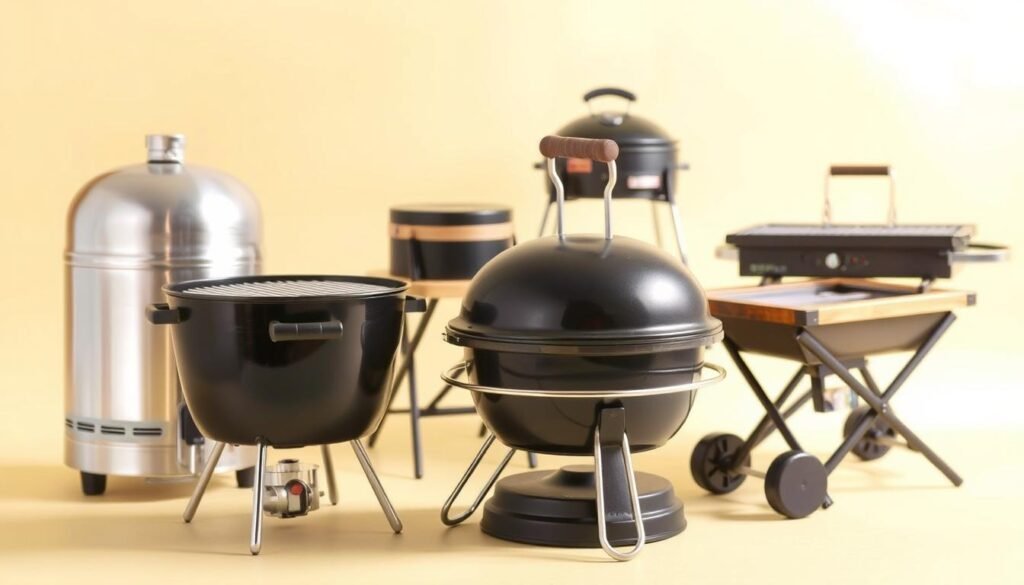
Cost Analysis: From Purchase to Ongoing Fuel Expenses
Looking at the total cost of owning portable grills shows big differences between propane and charcoal. The cost goes beyond the first price you pay. It also includes fuel and maintenance costs over time.
Propane System Costs for Portable Grills
Buying a propane portable grill can cost a lot, starting at about $450 for a basic one. Ongoing expenses include propane tanks, which cost between $20 to $50 to refill or replace. Cleaning and replacing parts also add to the cost.
- Initial grill cost: $450+
- Propane tank refill/replacement: $20-$50
- Maintenance costs: variable
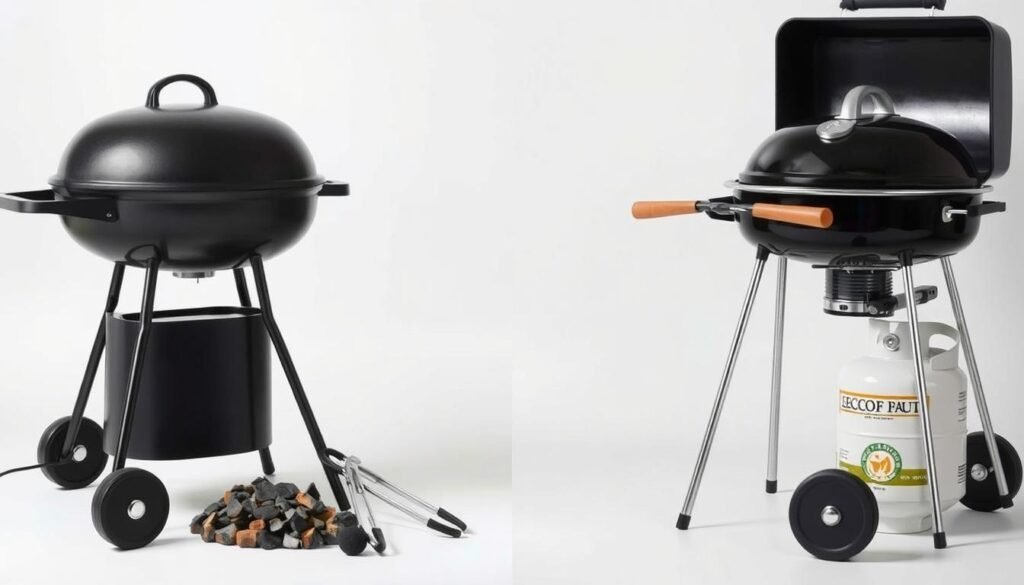
Charcoal and Starter Expenses for Travel Grilling
Charcoal grills are often cheaper to start with, costing around $220 for a good quality one. But, the cost of charcoal and starters can add up. A bag of charcoal costs $5 to $15, and how often you buy it depends on how much you grill. Starter expenses, like lighter fluid or electric starters, also add to the cost.
- Initial grill cost: $220+
- Charcoal: $5-$15 per bag
- Starter expenses: variable
Environmental Impact and Safety for Outdoor Cooking
Choosing between propane and charcoal grills affects more than just taste. It also impacts the environment and safety. As more people grill outdoors, knowing the effects of our choices is key.
Carbon Footprint and Sustainability Comparison
The carbon footprint of grilling fuels is different. Propane grills are better for the environment because they burn cleaner. They produce fewer emissions than charcoal.
Charcoal burns “105 times more carbon monoxide than propane,” showing a big difference in environmental impact.
Fire Safety Risks in Different Environments
Fire safety is very important when grilling outside. Charcoal grills are riskier because of the open flame and hot coals. These can be dangerous in dry or windy weather.
Propane grills have controlled heat. This might lower the chance of fires.
Health Considerations for Various Grilling Locations
Grilling’s health effects depend on the fuel and where you grill. Charcoal grills can create harmful substances like PAHs and HCAs. These are known to cause cancer.
Propane grilling makes fewer of these harmful compounds. Grilling in areas with good air flow can also help avoid health risks.
In summary, choosing between propane and charcoal grills is not just about taste and ease. It’s also about the environment and safety. Knowing these factors helps us make better grilling choices.
Ideal Scenarios for Each Portable Grill Fuel Type
Knowing when to use propane or charcoal grills can enhance your outdoor cooking. Your choice depends on your grilling style, flavor preferences, and convenience needs.
When to Choose Propane for Your Outdoor Adventures
Propane is great for those who want easy grilling. It’s perfect for quick outdoor cooking like camping or tailgating. Propane grills heat up fast and are easy to clean.
If you want a simple grilling experience, propane is the way to go.
When Charcoal Makes More Sense on the Road
Charcoal is best for those who love traditional grilling and smoky flavors. It’s ideal for long-duration grilling sessions or big gatherings. Charcoal grills give a unique taste that propane can’t match.
If you’re okay with more setup and cleanup, charcoal offers a real grilling experience.
Conclusion: Making the Right Fuel Choice for Your Portable Grilling Needs
Choosing between propane and charcoal for your portable grill depends on what you value most. Do you want convenience, flavor, or cost savings? Each fuel has its own set of pros and cons, as we’ve explored in this article.
Outdoor cooking lovers have to decide what they want from their grilling experience. If you like easy use, fast heat, and less mess, propane might be best. But if you’re after that smoky taste, charcoal is the better choice.
It’s also important to think about the environment and safety. Comparing charcoal and propane shows their different effects on the planet and safety issues.
By looking at the good and bad of each fuel, you can choose wisely for your outdoor cooking. Whether you pick propane for its ease or charcoal for its taste, the right choice will make your grilling better.
FAQ
What are the main differences between propane and charcoal grills?
Which type of grill is more convenient for outdoor adventures?
How do I choose between propane and charcoal for my portable grill?
Are there any safety considerations I should be aware of when using propane or charcoal grills?
How do propane and charcoal grills compare in terms of environmental impact?
Can I use my portable grill in different outdoor settings, such as camping or tailgating?
What are the ongoing expenses associated with propane and charcoal grills?
How do I maintain my portable grill to ensure optimal performance?

Whether you’re at the stadium or throwing a backyard watch party, Ryan’s tips help you serve up crowd-pleasing bites with minimal stress. From simple setups to tasty make-ahead snacks, Ryan’s all about making your tailgate fun, flavorful, and hassle-free.
Subscribe to Our Newsletter
